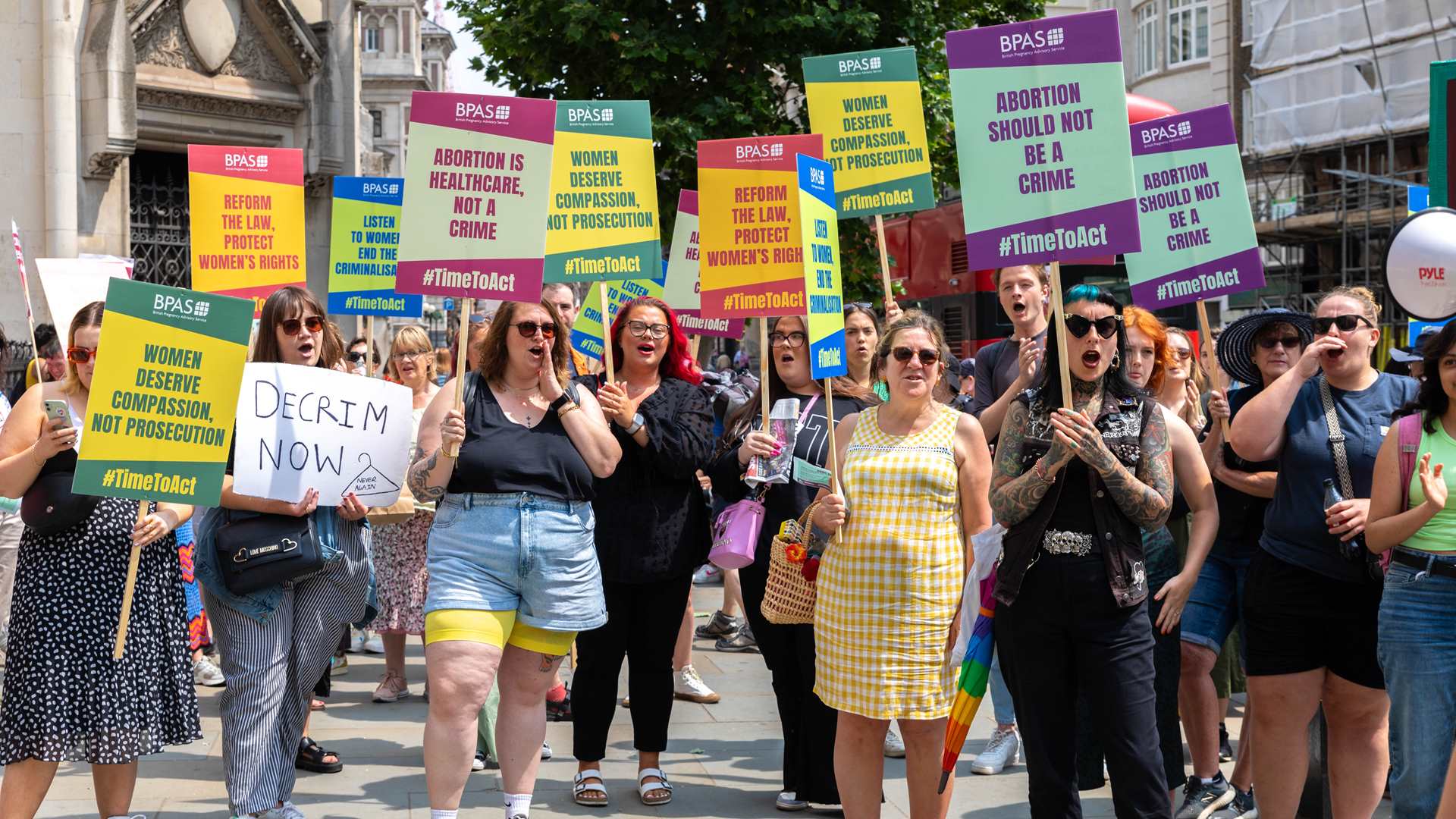According to the BBC, a growing number of women in the UK are facing prosecution for illegal abortion. There have been an increasing number of cases where women have been sentenced to prison after procuring abortion pills from unregulated sources or using them after the 24 week mark to terminate their pregnancy. But is this an issue caused by the impact of our own laws?
The pandemic saw abortion laws relaxed to allow abortion pills to be sent via post and for women to have a consultation via video or over the phone with a doctor instead of attending a clinic, making abortions for women up to 10 weeks pregnant more accessible. But was this enough? Here, we take a look at the issues around abortion law in the UK, why more women are being prosecuted for abortion, and what needs to happen to provide better care to women seeking help for unwanted pregnancies.
What does the current UK law say about abortion?
According to the Abortion Act of 1967, in England and Wales, getting an abortion for pregnancies up to 24 weeks is legal – if it is signed off by two doctors. For pregnancies over 24 weeks where there is considered to be a threat to life or where chances of foetal abnormality are high, an abortion can still be carried out after this point, with approval from two doctors. Any attempt to terminate pregnancy outside these criteria, is considered to be a criminal offence which may be subject to life imprisonment.
How do the current abortion laws impact women? The issues
England and Wales abortion law may feel quite lenient at first, especially when you consider the issues in the U.S. at the moment, but there are vast improvements that need to be made. For starters, did you know that the current Abortion Act of 1967 is over 50 years old? We are following laws that were made more than five decades ago – from a very different time! This is significant not only because it fails to take into account medical advancements in the field and also disregards the current status of women in society.
One of the most significant concerns is that abortion, which should be a fundamental right at this point, is still considered a crime under the Offences Against the Person Act of 1861 (barring the criteria of Abortion Act of 1967). Both women and doctors can be charged. Women ending their pregnancy after 24 weeks (unless there is significant risk of harm to mother or baby) can be charged, as can doctors; the law requires two separate doctors to authorise on each abortion, making sure that certain stringent criteria are met.
For women who may already be struggling with physical and emotional struggles during their unwanted pregnancy, this makes the choice of abortion even more difficult. It can discourage women from coming forward and seeking care when they really need help for fear of punishment. In a small number of cases, it can lead to women turning to other unauthorised channels to obtain an abortion, which is highly dangerous.
To give a real life example, Carla Foster, a 44 year old woman from the UK, was prosecuted for undergoing a late abortion back in May 2020. It was found that she carried out the abortion around 32 to 34 weeks of her pregnancy, which is beyond the 24 week gestation period outlined in the law. The mother of three was sentenced to a 28 month custodial term by Judge Edward Pepperall but this was later reduced to a 14 month term by the courts, after her appeal following the public outcry.
In fact, The Royal College of Obstetricians and Gynaecologists (RCOG) has urged doctors to not report women on suspicions of illegal termination of pregnancy because it can cause negative emotional burden and traumatise them.
If this wasn’t enough in terms of the hurdles women have to face when it comes to accessing abortion care, you can add into the mix the issues that can arise related to geographical location. To put things in perspective, access to abortion services across different regions of the UK varies and wait times can range from 1-3 weeks to be seen. The issue with this is that termination is highly time sensitive, with risk of complications increasing the more advanced a pregnancy is. Thankfully, private abortion clinics can often offer next day appointments.
While some may argue that regions like Northern Ireland have made attempts to decriminalise abortion in 2019, the implementation of these amendments still remain questionable.
Abortion law requires change
In a nation where 1 in 3 women will undergo an abortion at some point in their lives – according to the Royal College of Obstetricians and Gynaecologists – there’s no doubt that the current abortion laws need further reform. There is much work to be done to decriminalise abortion, to make sure all women feel able to come forward and get the care they need, and to shut down illegal trade of abortion pills.
As for women who wish to terminate their pregnancies safely and within the current limits defined in the Abortion Act of 1967, ordering the abortion pill online from a regulated clinic is the safest option. A regulated clinic will ensure you can speak to an experienced medical professional who can provide you the required support and care you need. Abortion pills online are only suitable for pregnancies up to 10 weeks. If you are past 10 weeks, a clinic can also offer surgical abortion.
Abortion is a choice – your choice
While current abortion laws in the UK may seem to be stringent, unjust and old, the need for reform in this sector is highly evident. Undergoing an abortion should be a matter of choice rather than a crime. Of course, rules are required but too many stringent limits can also deter women from seeking professional health advice for fear of repercussions, which can result in loss of life in serious cases. Recent amendments to the Abortion Act by the UK Government during the COVID-19 pandemic were certainly helpful but there are still many steps to climb to bring about more meaningful change.
Keep an eye for more latest news & updates on Gossips!




